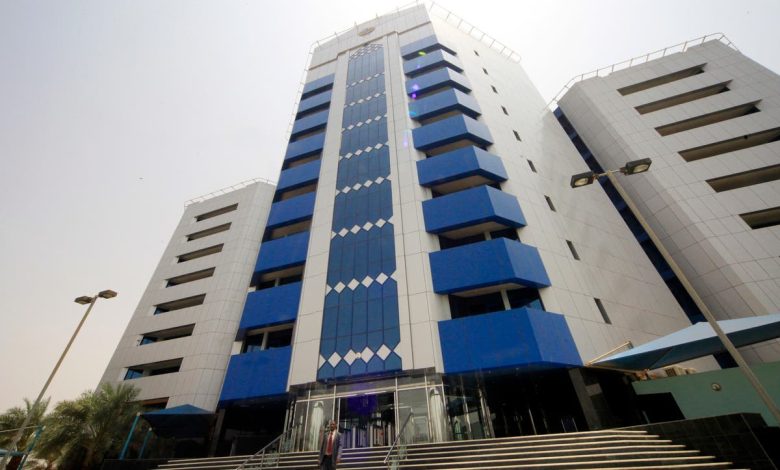Banning Export Companies…Besieging the Dollar

Report – Rehab Abdullah
Exporters have sharply criticized the Central Bank of Sudan’s decision to ban 209 companies working in the field of exports. The bank attributed the reasons for the ban to the failure of these companies to pay export revenues over previous periods.
Reasons for the ban
An informed source at the Central Bank of Sudan told (Al-Ahdath) that the decision comes within the framework of continuous supervision of commercial banks for the purpose of adhering to the controls, directives and policies of the Central Bank, to ensure the flow of the country’s resources from the proceeds of exports in foreign exchange, indicating that the bank has been pursuing these companies for the purpose of supplying the export proceeds, However, the companies continued to evade paying the export proceeds and move the export money outside Sudan, noting that the Central Bank continued to pursue them for the purpose of payment, but this was to no avail, which forced the Central Bank to issue a ban decision, and link the companies’ return to practicing their commercial activity, to their commitment to pay the export proceeds.
Banned companies
Perhaps what is unfortunate is the matter, and according to the circular that (Al-Ahdath) obtained a copy of, some of the companies included in the ban are well-known companies with a large weight in the market and a good reputation, including Semsem Company for Integrated Solutions, Murooj Commodities, Bashir Ashi for Livestock Trading, Al-Siddiq Brothers for Integrated Solutions, The Central Trading Company Limited, Kufti Trading Company, and others are found in the attached list. Most of them work in the field of crops, such as exporting sesame and gum arabic, in addition to working in the field of exporting livestock. These companies export to some neighboring Arab countries, and then procrastinate in supplying the export proceeds on time.
Defamation
The owners of banned companies confirmed during their talk to Al-Ahdath that the Central Bank of Sudan’s move will negatively affect the reputation of their companies abroad, and they confirmed that they will be exposed to major damages, the most important of which is the loss of exporters’ confidence.
Disruption of foreign trade
The former Secretary General of the National Chamber of Importers, Al-Sadiq Jalal Al-Din, criticized the ban decision as a measure that was taken at an inappropriate time and in exceptional circumstances and with many complications in which the exporter operates. He described the exporter’s activity under those circumstances as a sacrifice and a risk that must be supported, and he added, “It is neither reasonable nor logical to issue a statement prohibiting 209 companies, including well-known companies that have a major role and significant effort in advancing the Sudanese economy
He warned that the decision would disrupt the flow of foreign trade, especially the export process, and thus harm the economy. He stated in his speech to (Al-Ahdath) that the ban list is incorrect and was prepared incorrectly and randomly, and he asserted that most of those companies have a sound position.
Supporters of the ban
However, on the other hand, there are supporters of the ban decision, as the head of the Leather Exporters Division, Khaled Mahmoud Haroun, considered the Bank of Sudan’s recent measures to ban companies that did not commit to returning the money issued for previous periods as a serious and required step to prevent payment evasion, which has become the behavior of some exporters, especially What is known as paper money, and he said in his talk to (Al-Ahdath) that the money issued by the export revenue is considered very important for the central bank because it is a source of providing free currencies as well as for the trade balance, and it is money that reduces the pressure of demand for the dollar from the parallel market, and it is a step to combat behavior that has negative and destructive effects on the economy.
Legal prosecutions
Some observers considered that the ban measures are weak and are not followed by legal prosecutions. They stressed that this is not the first time that the Central Bank has banned companies and business names that have wasted estimated revenues from Sudanese funds. Observers stressed the need for export licenses to be granted to companies that have foreign exchange cover in the Bank of Sudan or local banks. Or
or have ssets registered in the name of the company. In the event of failure to pay the export proceeds, its balances or registered assets will be confiscated.
The economic expert, Dr. Mohammad Al-Nayer banning companies is logical and realistic, but he indicated in his speech to (Al-Ahdath) that they were supposed to export them in previous times and not in war conditions, and he said that any company or institution that violates the regulations and laws regulating import and export procedures in any country must be punished and banned from practicingll commercial activity, he stressed the need not to be complacent. He said that in the past, many institutions carried out operations and did not receive export revenues, then registered new companies and carried out other export operations, and so on. He pointed out the need for the state to pay attention to having a good electronic system by strengthening networks and arranging networks. Communications should be maintained in order to avoid what happened during the war, when networks were shut down. There should be a careful review and inventory of companies, and any violating company should not be allowed to operate.



